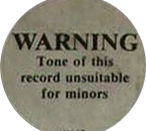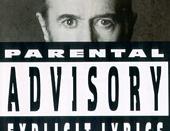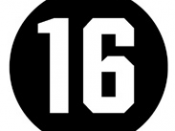The first amendment to the Constitution contends that "Congress shall make no law respecting an establishment of religion, or prohibiting the free exercise thereof; or abridging the freedom of the press." In the past ten years especially, music has been under assault by law makers, prosecutors and critics of morality and taste. One attack on this freedom comes from parental advisory stickers. These stickers are used as a form of censorship against an artist and his or her lyrics. I feel that if a label will produce an album, there is no reason the consumer cannot decide for him or herself if lyrics contained in the album are found obscene or otherwise unsuitable.
In order to begin the debate on whether or not parental advisory stickers serve as a form of censorship, one must consider what the word censor implies. The word censor defined by Webster dictionary means the power to suppress publications or excise any matter in them thought to be immoral, seditious or otherwise undesirables.
The question of what constitutes "proper" language and obscenity has been greatly forced upon the music industry. The government oversteps the constitution in concluding on which lyrics are appropriate for children. Legislation on this topic has been in effect since the mid 1950's. Further legislation was not passed until 1985, when music labeling was voluntarily adopted by the Recording Industry of America. Later in 1990, although each company retained discretion regarding the labeling of specific records, the size, placement and wording of the logo were standardized. The current labeling consists of a black and white logo, fixed to the permanent packaging on the bottom right hand corner. For all the controversy these stickers stir up, does it serve a practical use for protecting the young people of the nation.
Parental advisory stickers, voluntary...


